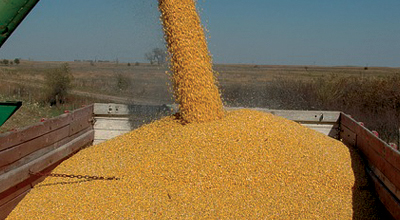
Image: Pixabay
Climate change could affect corn and wheat production by 2030 if current trends continue, according to a new international study that included researchers from IIASA, NASA and the Potsdam Institute for Climate Impact Research (PIK). Corn crop productivity is expected to fall by 24%, while wheat could grow by about 17%.
Using advanced climate and agricultural models, scientists found that the change in production is due to projected increases in temperature, changes in rainfall patterns and elevated surface carbon dioxide concentrations from human-caused greenhouse gas emissions. These changes would make it difficult to grow corn in the tropics, but could expand the area under wheat cultivation.
{module Form RD}
“We did not expect to see such a fundamental change, compared to crop production projections from the previous generation of climate and crop models conducted in 2014,” said lead author Jonas Jägermeyr, a crop modeler and climate scientist at the Goddard Institute for Space. from NASA Studies (GISS) and The Earth Institute at Columbia University in New York City. The projected response for corn was surprisingly large and negative, he said. “A reduction of 20% from current production levels could have serious implications worldwide.”
Crop models provide large-scale simulations of how crops grow and respond to environmental conditions, such as temperature, precipitation and atmospheric carbon dioxide, provided by climate models. The behavior of each crop species is based on its real-life biological responses studied in indoor and outdoor laboratory experiments. In the end, the team created about 240 global climate crop model simulations for each crop. Using multiple climate and culture models in various combinations increased the team's confidence in their results.
“In addition to the more pronounced production losses projected for corn by the new model suite, the emergence of adverse impacts from climate change – the time when historic extreme years become the new norm – also occurs substantially earlier for this crop and the model agreement is more robust. This suggests that less time may be left to adapt crop production systems related to climate change than indicated by previous ensemble studies,” said co-author and IIASA researcher Christian Folberth.
By: Leonardo Gottems | agrolink










